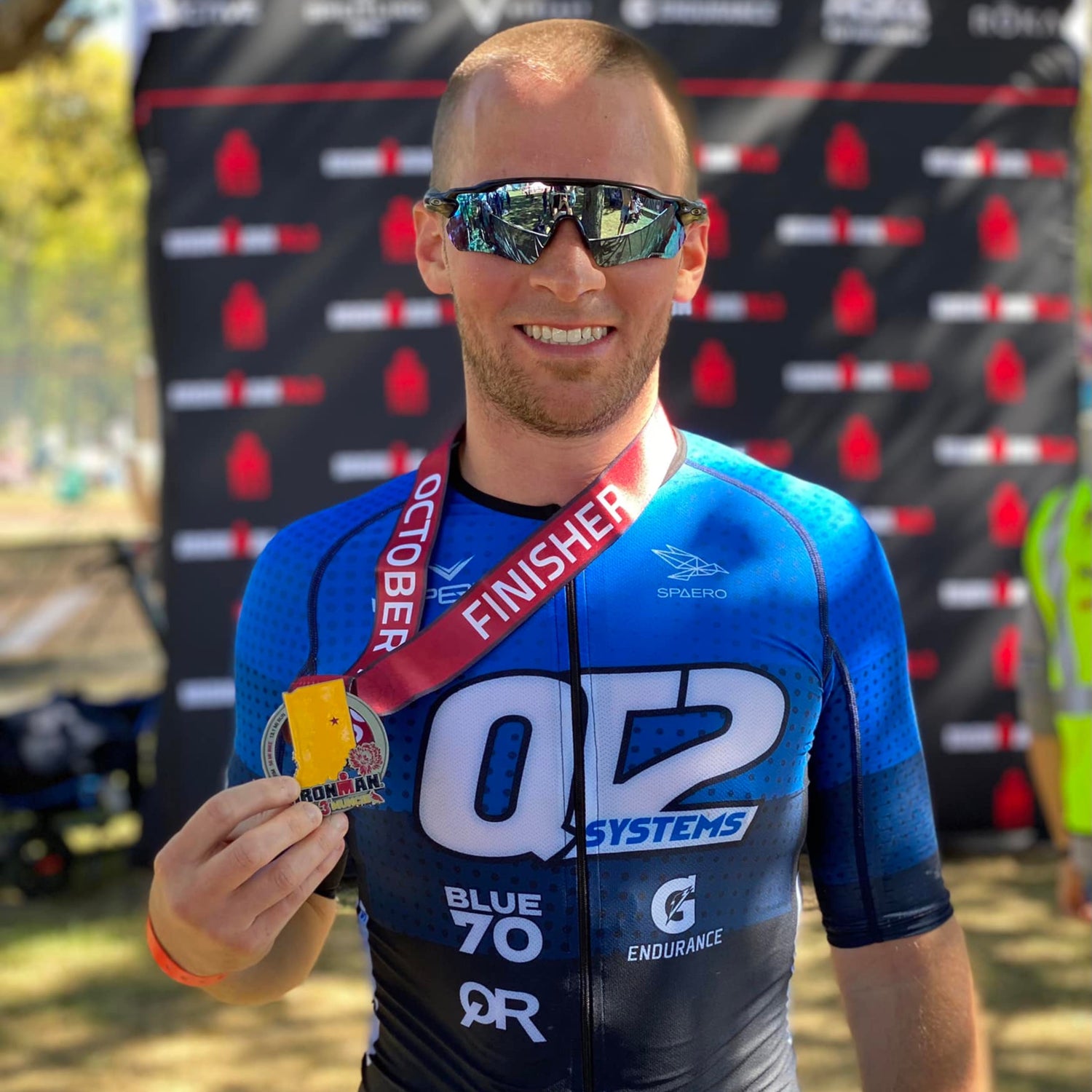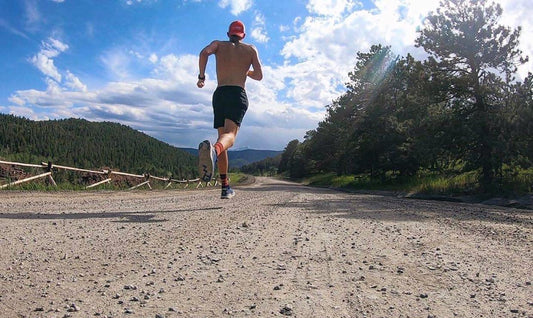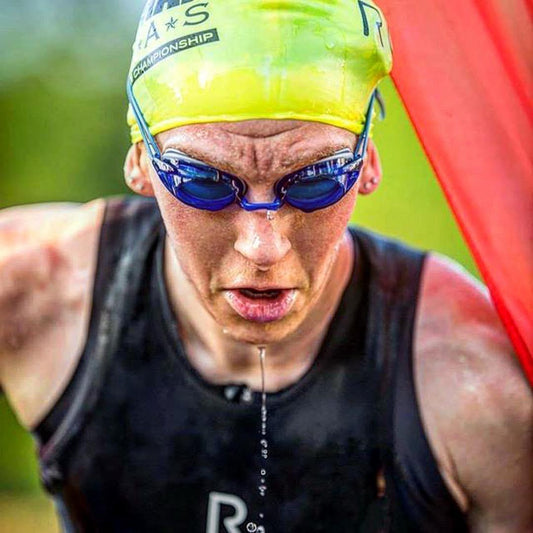Mental Fitness Tools
Understanding and mastering your mental fitness can be the key to unlocking your proven physical fitness and performance metrics on race day. Mental fitness is a term used to describe how an athlete's mindset impacts their training and racing. Good mental fitness leads to physical fitness enhancement, while poor mental fitness can limit physical fitness on race day and in training. When you have certainly covered the first four QT2 cornerstones; training, nutrition, pacing, and fueling, but are still not getting the race day performance or training progress that your sacrifices suggest, it is worth spending formal time on assessing mental fitness. QT2 attempts to optimize mental fitness for performance, but NOT to work with mental health. Suspected mental health issues should be referred to a professional psychologist. QT2's approach to mental fitness can be found within the following videos, webinars, readings, and writings.
Getting Started
-
Mental Fitness Overview
HEREWhat is Mental Fitness? Is Mental Fitness the same as Mental Health? What role does it play in personal and athletic performance? Can it be improved? If so, how? An introductory-level consideration of these questions, and many more, can be found in this important initial webinar on the subject of Mental Fitness.
-
The Tools and Basic Concepts of Mental Fitness
HEREMental Fitness is a developing science in the field of sports psychology, which draws upon many of the instrumental principles of traditional psychology. Learn about the tools of this emerging field, and how they are implemented.
-
Mental Fitness - Aspects and Strategies
HEREDespite an incomplete understanding of the human mind, and how it works, enough research has been done in the area of athletic performance to determine appropriate strategies needed to overcome mental limitations, as they arise. This article considers just a few.
-
The Happy Gremlin
HEREWe often draw the conclusion that those who are consistently at the top of their sport are there due to superior physical talents and preparations. While this is often the case, a deeper look at the forensics of preparation and performance, can unveil, both, strong mental fitness and an active inner-Gremlin. This reading explores the concept.
-
The Happy Gremlin - Additional Insight
HEREIn this brief podcast, Coach Jesse Kropelnicki provides additional insight into the concept of the Happy Gremlin - their costs and their benefits.
Mental Fitness Services
We offer mental fitness services at a discounted rate for our training clients. Feel free to email tim@qt2systems.com with any questions.
Primary Areas of Focus and Exercises
QT2 generally focuses on the following 5 major areas related to mental fitness. The goal is for our athletes to have a tool in their box for ANY situation that they may encounter on race day. Don't hope it won't happen; instead assume it will, but have a tool at the ready to deal with any situation!
Collapsible content
Confidence
- Ask your support system (family, friends, coach, etc) to use positive reinforcement with you.
- Think and act confidently - "fake it till you make it" eventually becomes reality.
- Learn from bad days. Successful athletes realize that you must have bad days to improve.
- Exercise: Write down all of the pressures you are feeling and separate self imposed pressures versus real pressures. You'll likely find that most are self imposed.
- Exercise: Strength Awareness Worksheet
Imagery
- Imagery should be used formally on race week each night before bed. Use all forms below:
- Coping imagery - imagine your worst fears coming true on race day...flat tire, dropped swim group, etc. THEN, imagine yourself pulling a tool out of your arsenal to fix/mitigate the situation, staying calm, and moving on to have a solid race.
- Best Performance Imagery - imagine the best past race performance you've had....what it felt like, how smooth you felt, the sights, sounds , etc.
- Success Imagery - Imagine the race going perfectly, everything clicking off the way it should, at the race venue you will be racing at....what it will feel like, how easy it will feel, the sights, sounds, etc.
Self-Talk
- Develop cue words for different scenarios you may encounter on race day. Have words for tough moments, and anxious moments that you can repeat to yourself.
- Make sure you do not use past thinking--stay task relevant!
- Exercise: Develop a written script you will use for different scenarios
Energy Control
- Picture an inverted U where energy level/anxiety level is on the X axis, and performance potential on the Y. Performance potential peaks at a 5 out of 10 in terms of energy level. Energy at a 1 or a 10 is not nearly as powerful as a 5 (the ideal performance state).
- Use your cue words to control energy level to a 5 out of 10 on race week, right up to the starting gun!
- Picture your previous totally flat and then over energized starts to understand optimal energy...somewhere in between.
- Try to use training sessions that give the pressure of race day.
- Exercise: Practice relaxation techniques to develop the ability to stay in the optimal zone of arousal and to prepare for guided imagery/mental practice. Deep breathing is a good place to start: breathe in through the nose, filling up the belly (not chest), pause, breathe out through the mouth 6-10x/min. (6-10 sec./breath). Progressive muscle relation works too (relax each major muscle group in order), as does tension-relaxation (tense a muscle and then relax it), meditation, and other techniques. Distracting thoughts are bound to appear - simply let them float on by and refocus on the breath or technique.
Focus
- Have a plan for what you will focus on for each sport before race day.
- Review how your focus was following races that went well or not well, and access your covert thinking - "what were you thinking when….?"
- Use focus plan worksheet before big events (see below). Stay in the moment!
- Exercise: Focus Plan
-
Typical Mental Obstacles
HERECommon scenarios for athletes and how to control them: Typical Mental Obstacles

One final exercise to help pull things together, if you are an athlete not performing to your potential: write a 250 word paper discussing why you aren't more disciplined in your training preparation, thinking, imaging, and acting skills during competition. Be honest with yourself!
The Mental Fitness Evaluation Tool
Coach Jesse Kropelnicki created this tool with the purpose of evaluating current (3-4 weeks) mental fitness. Ideally, this tool will be used once every four weeks with scores tracked throughout the season, and ideally peaked prior to key races similar to peak physical fitness. The questionnaire and results evaluation takes approximately five minutes to complete, and is meant to be a short, simple assessment of mental fitness - PRACTICAL in use. The mental fitness tool was developed to assess athletes in the five primary areas discussed above.
Exercises
Collapsible content
Breathing
Quicker, shallower breathing is the first trigger which catapults all of the other anxious symptoms into action. By controlling breathing you control each of the other symptoms of anxiety, as well.
If you purposely breathe out longer than you breathe in, your body has to calm right down (regardless of what tricks your imagination is playing on you).
So if you start to feel fearful:
- Stop
- Focus on your breath
- Take a breath in (to the quick count of 7 in your mind)
- Then slowly breathe out (to the quick count of 11 in your mind)
If you do this for a minute or so, you'll be amazed how quickly you've calmed down. We call this '7/11 breathing' but the numbers are up to you, just as long as the out-breath is longer than the in-breath.
Use the AWARE Technique
Fear and anxiety can feel as if they 'just happen to us', but we have much more control than we realize. AWARE is an acronym standing for:
A: Accept the anxiety. Don't try to fight it.
W: Watch the anxiety. Just watch it and when you notice it, scale your level of fear and start to breathe longer on the out-breath.
A: Stands for 'Act normally'. Carry on talking or behaving as if nothing is different. This sends a powerful signal to your unconscious mind that its over-dramatic response is actually not needed because nothing that unusual is going on. Like fire fighters coming out and seeing that no emergency is happening and so going back to the fire station.
R: Repeat the above steps in your mind if necessary.
E: Expect the best. One of the greatest feelings in life is the realization that you can control fear much more than you thought possible.
Recommended Reading
1. "Athletes' Guide Sport Psychology Manual", United States Olympic Committee, 2006
2. "The New Toughness Training For Sports", James E. Loehr, 1995
3. http://www.uncommonhelp.me/articles/overcome-fear-and-anxiety/
United States Olympic Committee’s Mental Fitness Skills Development and Maintenance Tools
-
Goal Setting
HEREFollowing an initial assessment, there are three exercises aimed at turning your outcome goals into process goals that are challenging, meaningful, and attainable.
-
Mental Imagery
, style, or even provide a review.
-
Self-Talk
Pa
-
Energy Management
Pa
-
Concentration
HEREFollowing an initial rating, there are three exercises specific to Concentration and Focus skill development.
-
Confidence
HEREFollowing an initial rating, there are three exercises specific to Confidence skill development.
-
Mental Preparation
HEREFollowing an initial self-assessment, there are two exercises specific to Mental Preparation skill development. None of this requires very much “heavy lifting”, but is a good opportunity for a moment of pause and reflection, and the centering of your thinking/focus.
-
Sticking With It
HEREHere there are three different daily logs that you can use, depending upon what you have going on, and/or what you are specifically working on. Choose the log, or logs, that work best for you!
The Butterfly Affect
The Butterfly Affect started out as a blog post, which grew into something much more lengthy and complex. This writing aims to share with the reader, some of Coach Tim Snow’s perspectives around the mental approach to training and racing, gleaned from his many years in the sport as, both, an athlete and Coach. Access this writing via the button below.



